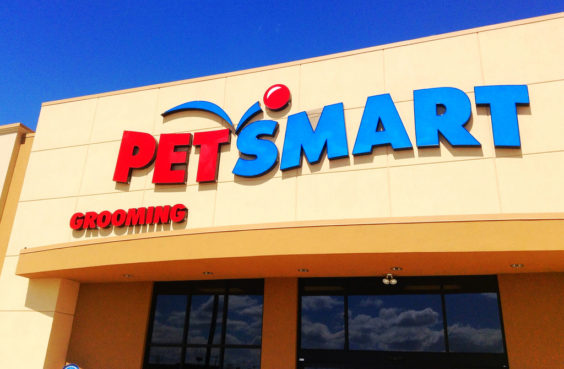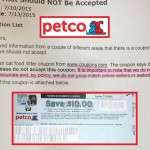
Can you patent something as simple as a coupon? It depends. If there’s something unique and proprietary about the coupon, sure. If it’s just a coupon – then you’d better be prepared to defend your patent in court.
A coupon patent holder has lost a lawsuit against PetSmart, in which it claimed that the pet store’s coupons violated its rights – because Motivation Innovations essentially, allegedly, invented PetSmart’s coupons.
The patent at issue was granted back in 1997. It describes a system for tracking and redeeming “discount offer flyers which are mailed, handed or otherwise distributed to potential customers… which is used by a point of sale machine to identify items which are offered at a discount and then apply an appropriate credit to the purchased items.”
Sounds like – well, a coupon.
That’s what PetSmart argued, when Motivation Innovations sued in 2013. Ulta Beauty, Bed Bath & Beyond, DSW, Hallmark, Victoria’s Secret, Express and Value City made the same argument when Motivation Innovations sued them.
The PetSmart suit was the last one standing, after Ulta Beauty won a dismissal of the case in 2014, and the other retailers reached undisclosed agreements with Motivation Innovations to end their disputes.
Motivation Innovations claimed that PetSmart violated its patent, by issuing home-delivered coupons via its PetPerks Rewards Program. But PetSmart fought it out til the end, which came this week.
“The patent relates to… using a single barcode or a coupon to identify discounts for multiple products,” PetSmart argued. The “purportedly novel business method” was unpatentable, PetSmart claimed, because it included “no claim of any technical or scientific innovation or breakthrough.”
In other words, PetSmart concluded, the patent merely described a plain old coupon.
In a ruling issued Tuesday, a federal judge agreed. The patent merely describes “the abstract idea of using coupons to provide discounts,” the judge ruled. “Regardless of the extra limitations related to how the method is used or what it improves, the patent claims are directed to the ‘use and redemption’ of coupons” and present nothing distinctive or patentable.
The case once again highlights the tricky business of issuing and defending coupon-related patents. When is an invention distinctive and defensible, and when is it so vague that it doesn’t hold up in court?
Hy-Vee, Ahold (the owner of Giant and Stop & Shop), Walgreens, CVS, Brookshire’s, Delhaize (the owner of Food Lion and Hannaford) and Publix are all in the midst of defending themselves against a patent claim relating to their digital coupon programs. The patent in question, owned by Advanced Marketing Systems, describes “a data processing system for tracking and processing a plurality of in-store discounts… comprising a membership card including a unique customer identification code for facilitating system transactions.”
Does Advanced Marketing Systems really have a claim against all of these retailers, just because its patent seems to describe their load-to-card digital coupon programs? Most of the retailers don’t think so. But defendants Kroger and Ingles agreed to settle their cases, with Kroger announcing that it would pay Advanced Marketing Systems a licensing fee in order to continue offering digital coupons.
It may be an expense that Kroger didn’t anticipate, or even agree with. But fighting a patent lawsuit to the end, as PetSmart did, can be a time-consuming and expensive proposition in itself.
So PetSmart may have won this week. But considering that Motivation Innovations managed to reach settlements with six of the eight retailers it sued – its patent, distinctive or not, may ultimately have paid off.










